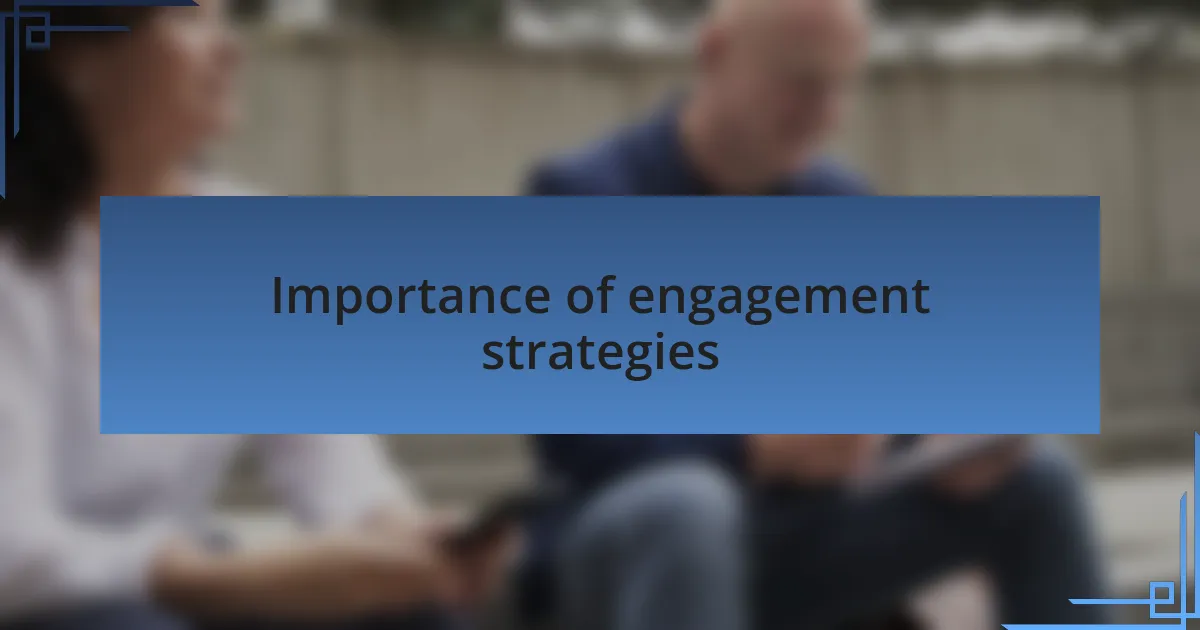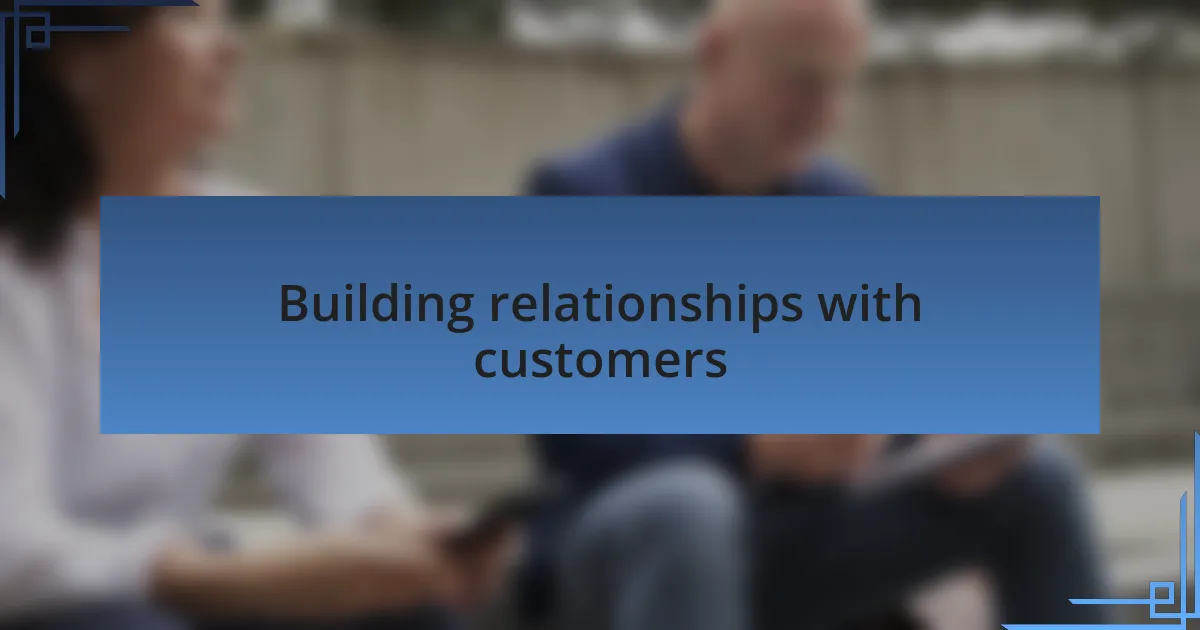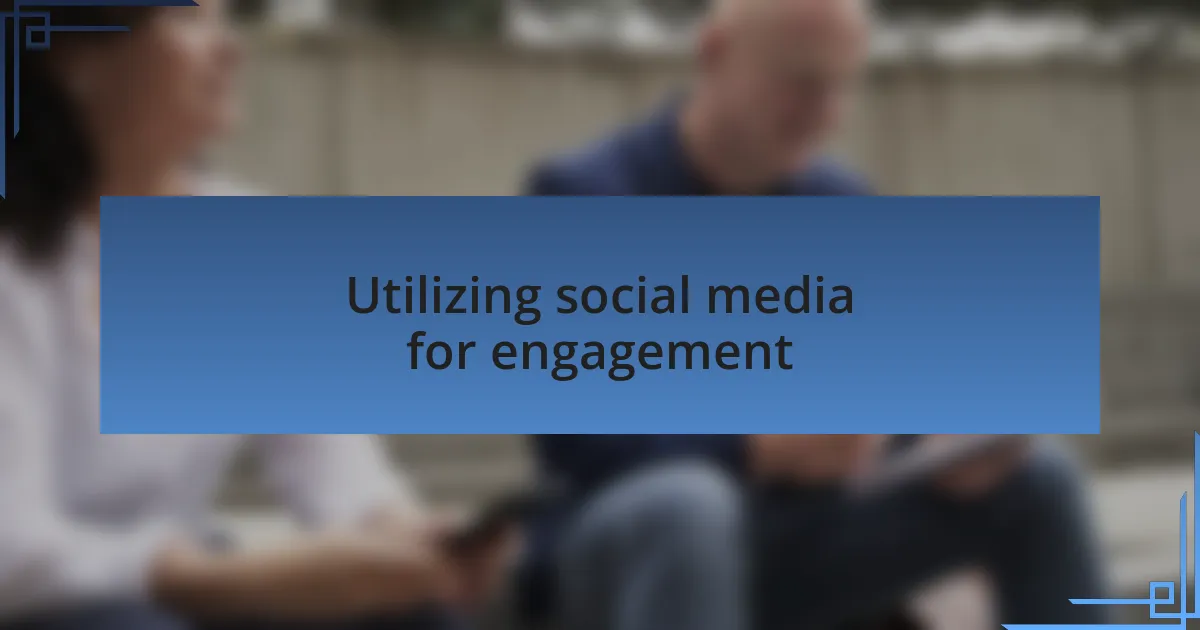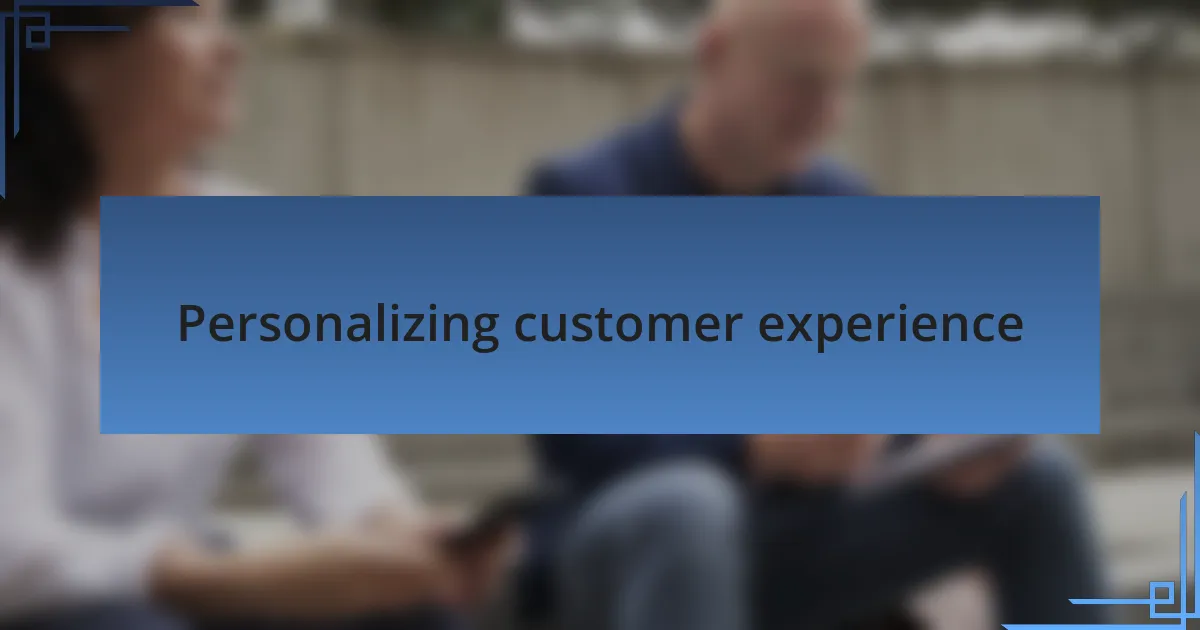Key takeaways:
- Brand loyalty is built through consistent engagement and positive customer experiences, transforming buyers into advocates.
- Engagement strategies strengthen relationships and enhance customer retention by fostering community and actively listening to customer feedback.
- Digital marketing agencies play a crucial role in creating personalized experiences and adapting brands to audience insights and trends.
- Personalization in customer interactions, such as tailored communications and product recommendations, significantly boosts loyalty and satisfaction.

Understanding brand loyalty
Brand loyalty is a deep emotional connection that consumers feel towards a brand, often fostered through consistent positive experiences. I remember when I first encountered a clothing brand that understood its audience so well; the way they engaged with me on social media made me feel valued. Have you ever found yourself returning to a brand simply because of how they made you feel during your last experience?
What strikes me about brand loyalty is how it transforms a one-time buyer into a passionate advocate. When I receive personalized recommendations and exclusive content from a brand I love, it not only keeps me coming back, but I also find myself sharing my experiences with friends. Isn’t it fascinating how a simple gesture can create such a chain reaction of loyalty?
Understanding brand loyalty means recognizing the importance of communication and engagement. I’ve seen brands falter when they overlook this crucial aspect, leaving their once-devoted customers feeling neglected. How often do you engage with the brands you love? The frequency of these interactions often determines the strength of that loyalty, creating a cycle of trust and satisfaction.

Importance of engagement strategies
Engagement strategies are essential because they create a two-way street between brands and customers. When a brand actively listens and responds to feedback, it fosters a sense of community. I recall a time when a company I admired directly addressed my concern about a product. Their prompt and thoughtful reply made me feel heard, reinforcing my loyalty. Isn’t it powerful when a brand validates your voice?
It’s also worth noting that effective engagement helps brands understand their audience on a deeper level. I’ve often found that the brands I engage with regularly know my preferences better than I do. This personal touch goes beyond mere transactions; it cultivates an environment where customers can express their needs and desires. Have you ever been pleasantly surprised by a brand knowing exactly what you wanted?
Ultimately, engagement strategies can significantly enhance overall customer experience. I’ve witnessed firsthand how brands that prioritize interactions over mere transactions tend to have higher customer retention rates. When was the last time a brand made you feel excited about their content? That excitement can transform casual buyers into lifelong supporters, all through meaningful engagement.

Role of digital marketing agencies
Digital marketing agencies play a pivotal role in shaping brand engagement strategies. They don’t just create content; they craft experiences that resonate with audiences. I remember working with an agency that tailored an entire campaign around audience insights. It was remarkable how they turned data into relatable stories that drew in customers.
Moreover, these agencies serve as the bridge between brands and their consumers, constantly analyzing trends and feedback. I once participated in a focus group organized by an agency, where I felt my opinions genuinely impacted a product’s direction. It was an eye-opening experience, reinforcing my belief that effective digital marketing involves collaboration and adaptability.
The expertise of digital marketing agencies enhances a brand’s ability to stay relevant in a crowded marketplace. This expertise can translate into innovative strategies that drive meaningful conversations. For instance, when a brand I follow adapted its messaging based on current events, I felt an immediate connection. Isn’t it refreshing when brands show they truly understand the pulse of their audience?

Building relationships with customers
Building strong relationships with customers requires consistent engagement. I recall a time when a brand I loved reached out personally via email after I expressed concerns on social media. That simple gesture not only addressed my issues but also made me feel valued as a customer. Isn’t that the kind of communication we all appreciate?
Listening is a crucial part of relationship-building. During a Q&A session a company hosted, I felt empowered when they openly acknowledged my feedback about their product. It was a reminder of how listening fosters trust, and it reinforced my loyalty to the brand. Every interaction can deepen customer connections, making them feel like part of something bigger.
Personalization enhances these relationships even further. I remember receiving recommendations from a brand that truly understood my preferences based on past purchases. It was like they were speaking directly to me. Isn’t it phenomenal when brands can make us feel uniquely recognized? This level of attention transforms customers into brand advocates, eager to spread the word.

Utilizing social media for engagement
Utilizing social media for engagement is essential in today’s digital landscape. I remember when I shared a post about my favorite brand’s new product launch. They not only liked my post but also took the time to reply with a personalized message. That moment made me feel special, and it’s amazing how such interactions can turn a casual follower into a loyal customer.
Engagement goes beyond simply posting content. I’ve seen brands flourish by asking open-ended questions in their social media stories. When I participated in one such poll, it felt like my opinion truly mattered. That kind of involvement can significantly strengthen relationships because customers feel that their voices are heard and valued.
Moreover, user-generated content can amplify brand loyalty. When I was encouraged to share my experience with a product alongside the brand’s hashtag, it created a sense of community. Seeing my post featured on their profile was an exhilarating moment; it transformed my perception of the brand into something more personal and relatable. Isn’t it powerful when brands tap into their customers’ voices to create a collective narrative?

Personalizing customer experience
Personalizing the customer experience is truly transformative. The first time I received a tailored email from a brand I love, acknowledging my past purchases and suggesting related products, I was genuinely impressed. It felt as though they understood my preferences and that the interaction was just for me. This approach not only made me feel recognized but also encouraged me to explore additional offerings, deepening my connection to the brand.
I’ve also noticed that using a customer’s name in communications can foster a more personal connection. There was a time when I interacted via chat support, and the representative addressed me by my first name, which made the conversation feel more genuine and engaging. It’s these little touches that make a significant impact; they show that a brand values its customers beyond just a transaction, nurturing a sense of loyalty that drives me to return time and again.
Additionally, personalized recommendations based on browsing history can enhance the shopping experience dramatically. I recall visiting an online store that suggested items based on what I had lingered on during my last visit. It felt like they were in tune with my interests, and I ended up purchasing something I hadn’t even considered before. Don’t you think that when brands make an effort to cater to individual tastes, it ultimately elevates the entire experience? This kind of interaction cultivates loyalty, as it creates a sense of belonging that resonates with customers.

Measuring engagement success
Measuring engagement success can sometimes feel like deciphering a puzzle. When I analyze the metrics on my website, I focus on engagement rates – the time spent on pages and interactions with content. I recall a time I launched a new blog post and noticed that readers lingered longer than usual on that page. It became clear that the content resonated, prompting me to dive deeper into similar topics to keep the momentum going.
Another effective way to gauge success is through feedback loops. I remember once running a quick poll asking visitors what they valued most in our newsletter. The response was enlightening! Not only did it provide clarity on what content to prioritize, but it also made my audience feel involved in shaping their experience. When customers feel like their opinions are heard, doesn’t that naturally cultivate a stronger bond with the brand?
Lastly, I find social media engagement to be a pivotal indicator. A post I shared recently sparked a lively discussion among my followers. Watching people passionately engage with each other and our content was a delightful moment that showed me just how invested they were. Does it make you smile, too, when you see your efforts translating into genuine conversations? Understanding these interactions not only reaffirms our strategies but also motivates me to continuously foster that community.